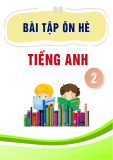
74
USING REFLECTIVE JOURNALS AS A PROFESSIONAL
DEVELOPMENT TOOL: VOICES FROM PRIMARY SCHOOL
EFL TEACHERS
Huynh Thi Nha Nha; Phan Quynh Nhu
University of Foreign Languages and International Studies, Hue University
pquynhnhu@hueuni.edu.vn
(Received: 10/09/2023; Revised: 30/10/2023; Accepted: 20/12/2023)
Abstract: This paper reports a qualitative case study on the use of reflective journal writing (RJW)
as a professional development (PD) tool by three Vietnamese primary school English language
teachers (VPETs). The study aims to explore their attitudes towards RJW through the data collection
tool of interviews conducted with the teachers before and after they spent eight weeks writing
reflective journals on their English as a foreign language (EFL) teaching at primary schools. The
interview results indicated that the teachers shifted their attitudes toward the use of RJW as a PD
tool, from being hesitant and doubtful of its advantages to being enthusiastic and welcoming to
RJW. Regarding the influences of RJW on their teaching performance, the issues of time and
insufficient training experience were reported as the barriers in journal teaching writing. However,
RJW was acknowledged to help improve the teachers' teaching performance and personal
development. The findings suggested that RJW could be used as a valuable PD tool to enhance both
teaching effectiveness and professional growth among EFL teachers.
Keywords: Reflective journals, reflective teaching, teacher professional development, EFL
teachers, primary school
1. Introduction
Professional development (PD) has been regarded as a crucial process in teacher teaching
profession, in which teachers keep themselves updated with the latest teaching methodologies and
strategies to improve their students' learning (Avalos, 2011). Thus, PD plays an essential part in
improving education quality. Aimed at enhancing teachers' knowledge and skills in language teachers,
various forms of PD have been conducted at school-based or individual-based levels (Brown & Lee,
2015; Díaz-Maggioli, 2003; Richard & Farell, 2005, 2011). While the former group of PD activities
such as training courses, workshops, and conferences are considered formal and direct forms of
teaching, individual-based PD activities such as reflective teaching journals or self-monitoring engage
teachers as active, self-directed, and reflective agents in their learning process. Thus, the latter group of
PD activities would allow for more reflection, self-assessment, and critical thinking in their teaching
thinking, and thus promote more teacher development (Richard & Farell, 2005; Avalos, 2011;
Kwakman, 2003; Tran et al., 2020). It is suggested that reflection helps them gather information on
their instruction and student achievement to evaluate their practice and enable teachers to be more
conscious of their beliefs and make informed decisions by contrasting them with their classroom
practices (Cirocki & Farrell, 2016; Farrell, 2014).
Previous studies have explored the use of reflective teaching journals in various contexts
(Belvis et al., 2013; Kinsella, 2001), but few have deeply examined in-service teachers' perceptions and
practices of writing teaching journals in the Vietnamese context. A scarcity of research on the use of
reflective journals among in-service primary school EFL teachers makes it more crucial to conduct a
study on how Vietnamese primary EFL teachers (VPETs) perceive reflective journals as a PD tool to
improve their teaching. In alignment with the aim, a qualitative case study was conducted to seek the
answers to the research question "What are the attitudes of in-service Vietnamese primary EFL teachers
towards reflective journal writing?"
2. Literature review

Tạp chí Khoa học Ngôn ngữ và Văn hóa
ISSN 2525-2674
Tập 8, số 1, 2024
75
2.1 Key concepts
Professional development
The concept of professional development (PD) has been extensively discussed in the literature
on teacher development and education (Farrell, 2013). Bell and Gilbert (1994) define PD as developing
teachers’ beliefs in classroom practice and attending to teachers’ feelings associated with change. In
line with this, Day (1999) notes that PD is a complicated, continuous, and long-term process that aims
at both intelligent and emotional change on the part of the teachers to keep or grow the quality of
education in the classroom. Put more emphasis on the active role of the teacher and the context-
embedded nature of teacher learning, Diaz-Maggioli (2003) defines teacher development as "an
evolving process of self-disclosure, reflection, and growth that yields the best results" (p. 3). Teacher
learning is not a one-off event, but a long-term process, continuously developing teachers' knowledge
of their "self, students, subject matter, curricula and setting" (Johnson, 2006, p. 9). To be more specific
about the focus of the teacher learning process, Avalos (2011) regards PD as an instructor's learning
process, learning how to learn, and putting their knowledge into practice for their students’ progress.
Drawing on the aforementioned features of teacher professional development, PD in this study is
defined as an ongoing reflective process in which teachers make inquiries about their self, students,
subject matter, teaching experiences, and social, cultural, and political features of their teaching context
with its outcomes of positive impacts on students’ learning.
Reflective teaching
In education, the concept of reflective teaching (RT) was initiated by John Dewey (1933), and
then by other linguists and educational researchers over the last century. According to Dewey (1933),
teachers do not learn from experience, but from reflecting on experience or reflective teaching. It is a
systematic process of problem-solving that involves teachers intentionally reflecting on a particular
event, occurrence, or circumstance. Since a teacher alone does not suffice for learning if he or she does
not reflect on his or her experience, he or she should actively consider what he or she has done for
adventure. To improve teachers’ practice, Dewey advises teachers to combine practical teaching
experiences with sincere, systematical reflections. In a similar vein, Simmons and Schuette (1988)
define a truly reflective teacher as the one who makes instructional decisions intentionally and
tentatively, thoughtfully weighs all relevant contextual and pedagogical factors, actively seeks evidence
regarding the outcomes, and continues to adjust these decisions as the circumstances require. Lysons
(1998) also equates RT with how teachers interrogate their teaching practice, asking questions about
the effectiveness of their teaching practice and how they might be refined to meet the needs of students.
In addition, Lysons (1998) compares RT to teachers' methods of questioning their methods of
instruction, seeking to improve them to meet the needs of students. In more detail, Farrell and Mom
(2015) describe RT as a cognitive process followed by a set of attitudes in which instructors routinely
get information about their practice while conversing with others and use that information to guide their
practice both within and outside the classroom. Based on the definitions suggested in the literature, RT
in this study is defined as a process by which teachers think critically before, during, and after teaching
practice and quest for evidence of effective teaching.
Reflective journal writing
As far as reflective teaching is concerned, a variety of PD tools have been adopted by teachers
to reflect on their teaching, namely narrative, classroom observation, peer sharing, action research, and
reflective journal writing (RJW). Among these, RJW has widely been used in the field of education
(Stevens & Cooper, 2020). RJW, according to Dyment and O'Connell (2003), is the recording of daily
events, personal reflections, questions about the environment, and reactions to experiences. Bolton

76
(2010) claims that journals are one of the fundamental pillars of RT, and they could be seen as a person's
journey. They can be kept as a diary, written to and for each other in pairs or groups, or carried in the
form of a diary. Cirocki and Farrell (2017) note that logs and diaries are frequently used interchangeably
with journals. Lesson planning, attendance, and the description and interpretation of classroom events
are common examples of the objective data kept in teaching journals. Teachers can then check for any
disparities by comparing their stated views with their noted classroom activities (Farrell, 2007). In this
way, second language teachers can use teaching journals to legitimize and solve problems while
reflecting on new teaching ideas.
About what has been suggested in the literature about RJW, this study adopts RJW as a process
of writing about teaching experiences, including what happened before, during, and after teaching
practice that helps teachers strengthen their personal and professional development.
2.2 Benefits of reflective journal writing
Reflective journal writing used as a PD tool has been proven to benefit teachers in various
aspects of the teaching profession. The triple-faced merits of RJW include fostering teachers' self-
awareness, enhancing their critical thinking, and promoting problem-solving skills.
Fostering self-awareness
It has been found in extensive previous studies that fostering teachers' self-awareness is the
prominent advantage of RT through RJW (Casanave, 2013; Genc, 2010; Good & Whang, 2002). The
results of Genc's (2010) study show that keeping a reflective journal helps in‐service EFL teachers in
Turkey realize their own opinions and background information regarding teaching and studying foreign
languages. In a similar vein, Good and Whang (2002 ) note that writing reflective journals provides
preservice teachers with more opportunities to link their past personal experiences with future
development. Donyaie and Afshar (2019) also found similar benefits of RJW in enhancing the cognitive
awareness of EFL teachers in Sanandaj by allowing them to learn from their own teaching experiences.
Enhancing critical thinking
RJW has been proven to improve critical thinking in teachers by assisting them in revisiting
their understanding of their inner teachers through a process of active and skillful reflection (Farrell,
2004; Lee, 2007). Apart from helping teachers understand themselves, RJW is a tool for teachers to
clearly define the particular features of their classes (Richard & Lockhart, 1994). Conducting a study
with in-service teachers in Hong Kong, Richard and Lockhart (1996) found that recording events that
occur around the classroom by writing could provide teachers with basic critical reflections on how to
develop their lessons more effectively. In the same vein, Farrell (2004) emphasizes journal writing can
allow in-service teachers later review and assist them in gaining a deeper understanding of their work.
Moreover, through critical reflection, teachers can clarify their beliefs on teaching and their students’
learning; thereby, they can meet the needs of the students and promote student outcomes. Similarly, the
findings of Lee’s (2007) study support that journal writing enables pre-service teachers in Hong Kong
to engage in reflective thinking in their teaching practices.
Promoting problem-solving skills
Previous studies highlighted that RT facilitates teachers in dealing with unexpected teaching
situations (Farrell, 2014; Greiman & Covington, 2007; Wallace, 1998). Wallace (1998) asserts that
journals are the ultimate instruments for teacher reflection because they allow teachers to analyze
classroom critical incidents and discuss possible solutions in their diaries. Therefore, they could
properly handle unexpected situations in the classroom. Likewise, Farrell (2014) explains that RJW
guides teachers’ learning to an analysis of various issues in their work, by addressing and resolving
problems that arise inside and outside the classroom. RJW, in other words, is a means to create a link

Tạp chí Khoa học Ngôn ngữ và Văn hóa
ISSN 2525-2674
Tập 8, số 1, 2024
77
between theoretical and practical issues (Woodfield & Lazarus, 1998), between the course content and
their real-life experience, which might construct their understanding of matters that occur in the class
(Abednia et al., 2013). Likewise, Greiman and Covington (2007) emphasize teachers identified
pedagogical problem-solving as the second most frequent benefit of journaling, lending support for the
development of critical thinking skills through the writing process. As a result, RJW is the way for
teachers to create better problem-solving strategies and come up with new ideas for teaching practice.
2.3 Challenges of reflective journal writing
In contrast to the aforementioned multiple benefits, two major challenges of RJW, including
teachers' time deficiency and insufficient training experience have been extensively discussed in the
literature.
Time deficiency
The issue of time deficiency has been reported in a large body of previous studies in different
settings (Abednia et al., 2013; Farrell, 2014; Greiman & Covington, 2007; Zulfikar & Mujiburrahman,
2018). From Zulfikar and Mujiburrahman’s (2018) findings, time constraint was reported as a
hindrance to in-service English teachers in the United States in their process of performing reflective
thought. Likewise, Farrell (2014) states that the time for writing and reading journals could be a
considerable problem in the process of RT to a novice male English as a second language teacher at a
language university in Canada. In a similar vein, pre-service teachers and in-service teachers in Iran
spend limited time reflecting on their teaching after long working days because they are overloaded
with duties and responsibilities they have to fulfill (Abednia et al. 2013). As a result, most of the teachers
fail to write journals regularly, which may affect the quality of their reflection entries.
Insufficient training experience
Insufficient training experience is another issue that has been reported in the literature. Russel
(2005) argues that although extensive attention has been drawn to reflective practice, few teacher
trainers equip their teacher trainees with fundamental insight and specific skills for performing
reflective teaching. Empirical evidence from previous works reveals a similar situation. Lai and
Calandra (2007) report that limited knowledge of RJW and a lack of RJW principles and guidance are
the major factors in the failure of performing online reflections of a group of pre-service teachers in the
United States. In a similar vein, the findings from Greiman and Covington’s (2007) study revealed that
pre-service teachers in the United States feel confused because they have insufficient knowledge of
what and how to perform their RT and, thus, find it struggling to identify what to write in their journals,
which might have decelerated their professional development.
The merits and drawbacks of RJW have been acknowledged in various contexts of teacher
training and development; however, a dearth of empirical evidence on the use of RJW by Vietnamese
EFL teachers, significantly in primary school settings. Therefore, the current research was conducted
to explore the implementation of RJW as a PD activity specifically in the context of primary schools in
Vietnam with its social, cultural, and political features.
3. Methodology
To investigate in-service primary teachers’ attitudes towards the use of reflective journal
writing, this study adopted a qualitative case study as a research framework guiding its process of
designing and implementing the research (Cresswell, 2014; Holliday, 2015; Yin, 2018) to obtain in-
depth and detailed understanding about the teachers' authentic experience in RJW in their specific
teaching context.
3.1 Participants

78
This case study carefully selected participants based on relevance and availability, ensuring
voluntary participation and a good population sample for the research implementation process (Higgins
et al., 2019; Manohar et al., 2018). For the first criterion of relevance, the participants selected in this
study were based on their age range, years of experience, and school setting. The three teachers are
currently working as in-service teachers in three primary schools in a city in central Vietnam and have
over 10 years of teaching English as a foreign language to primary pupils. Regarding the issue of
availability, within the researcher's network of acquaintances, three VPETs, who used to be her teachers.
The teacher participants were well informed of the research's aims and data collection plan and
voluntarily participated in the study by writing weekly reflective journal entries for eight weeks and
attending pre- and post-interviews. For their confidentiality, pseudonyms are used for the teachers'
names and schools'. Their qualification, teaching experience, and other demographic information are
presented in Table 1.
Table 1. Profile of teacher participants
Profile
Nam
(pseudonym)
Hoa
(pseudonym)
Cuc
(pseudonym)
Gender
Male
Female
Female
Age
46
47
43
Qualifications
Bachelor's degree in
English Language
Teaching
Bachelor's degree in
English Language
Teaching
Bachelor's degree in
English Language
Teaching
School setting
Sao Mai Primary School
Sao Kim Primary School
Sao Hoa Primary School
Grade of teaching
Grades 2, 4, 5
Grades 2, 3, 4
Grades 3, 4, 5
Class period per week
24
22
20
Years of EFL teaching
21
19
11
Engaging in the current study, the three teachers were suggested to write reflective teaching
journals weekly on their teachings of EFL to their different classes at their school for the whole week.
Via a Google document shared by the researcher, each of the three teachers was asked to reflect on their
teaching based on guiding questions for eight successive weeks (see Appendix 1). The guiding questions
focus on their preparation for the lesson and teaching performance.
3.2 Data collection and analysis
This study utilized semi-structured interviews as the major data collection tools to investigate
teachers' attitudes toward reflective journal writing (RJW). The semi-structured interviews were guided
by predetermined questions, allowing for further discussion. With their consent, each of the teachers
was invited for two interviews, namely a pre-interview before their writing reflective journals and a
post-interview after their eight weeks' writing journals.
Before starting writing reflective journals, the three participant teachers were interviewed to
explore their attitudes toward the use of reflective journal writing as a PD tool. The interview included
10 open-ended questions, which were divided into two main parts. The first part aimed to collect data
about the teachers' attitudes toward the use of RT as a PD activity (Questions 1-5) and the second aimed
to explore their attitudes toward the use of RJW (Questions 6-10). (See Appendix 2)
After completing reflective teaching journals, the three teachers were invited for the second
interview, which aimed to find out their attitudes towards their experience in RJW and explore the
influences of RJW on their development and teaching performance. The interview included 5 questions,
which were divided into three main parts. The first part aimed to collect data on any transformations
that the teacher made in his or her observed lesson and their possible reasons (Questions 1-2). The
second part sought to find out the teachers' attitudes about RJW after experience writing six reflective
journals over a six-week period (Question 3). The third part explored the influences of RJW on teacher
development and teaching (Questions 4-5). (See Appendix 3)

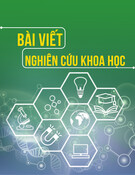
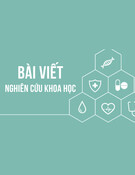

![Bộ đề trắc nghiệm Tiếng Anh lớp 5 [mới nhất]](https://cdn.tailieu.vn/images/document/thumbnail/2020/20200529/le_1307/135x160/471590714638.jpg)
![Tổng Hợp Ngữ Pháp Tiếng Anh Lớp 9 [Chuẩn Nhất]](https://cdn.tailieu.vn/images/document/thumbnail/2020/20200120/nanhk4/135x160/6881579527087.jpg)
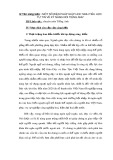
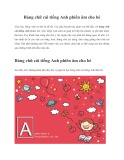
![Đề thi học kì 2 môn Tiếng Anh Lớp 4 [năm học] mới nhất](https://cdn.tailieu.vn/images/document/thumbnail/2016/20160730/uclamhunglevinhtranl/135x160/2961469864777.jpg)
![500 câu trắc nghiệm Tiếng Anh lớp 9 [Kèm đáp án chi tiết]](https://cdn.tailieu.vn/images/document/thumbnail/2016/20160726/nxuanchinh27/135x160/1636584746.jpg)


![Tài liệu Từ vựng tiếng Anh Trung cấp [mới nhất]](https://cdn.tailieu.vn/images/document/thumbnail/2025/20250913/nguyentuan250421@gmail.com/135x160/99491757910839.jpg)
![Tài liệu Từ vựng Tiếng Anh theo chủ đề [mới nhất]](https://cdn.tailieu.vn/images/document/thumbnail/2025/20250913/namdhuet@gmail.com/135x160/83251757753810.jpg)
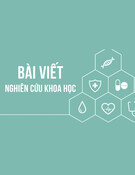

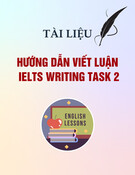
![Tài liệu Từ vựng tiếng Anh cho bé [chuẩn nhất/mới nhất]](https://cdn.tailieu.vn/images/document/thumbnail/2025/20250731/huadaithesang2509@gmail.com/135x160/18631754013896.jpg)





